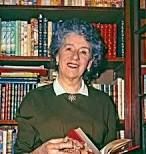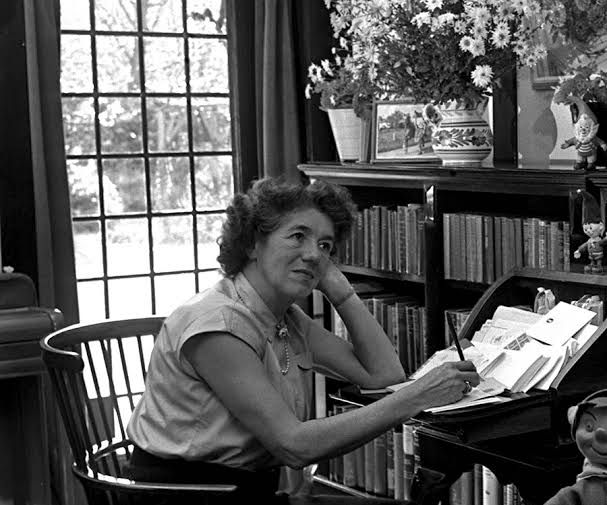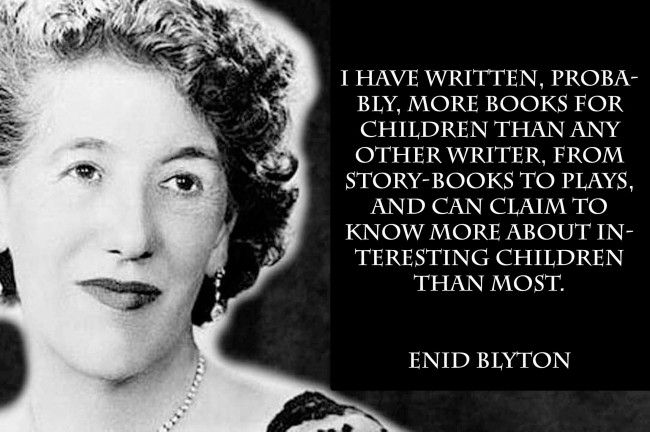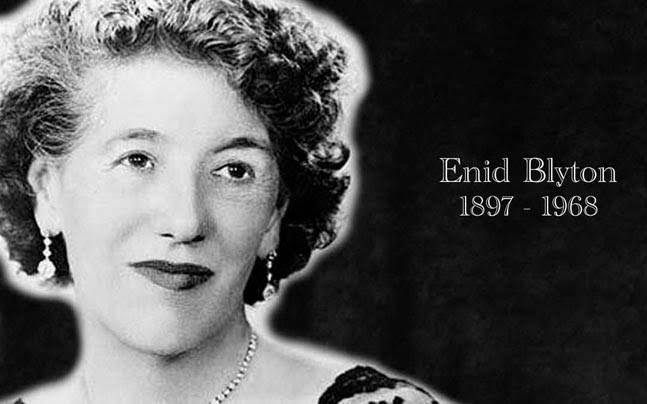Imaginary Interview #3
Jun 29, 2019 • 66 views
Imaginary interview with the world famous children story-writer: Enid Blyton
Hello everyone. This is your reporter, Oindri Kundu, with a round of an exclusive interview and a secret that’s definitely going to leave you spellbound. Using the new technology of time travelling to my full advantage, I went backwards to the year 1966 in Goa to record this historical meeting and provide you with the same excitement that I felt on meeting the world famous children's story writer - none other than our very own Enid Blyton. Even though I was astounded to see her vacationing here in India, the reporter in me made me take this incredible opportunity to interview her.

Me- Hello ma'am. It's such an honour and privilege to meet you. I've been your fan since I can remember and I'm so grateful to you for agreeing to do this interview.
EnidBlyton- It's really no problem dear. I have a bit of free time right now as I'm thinking of a new storyline for the kids.
Me- Speaking of storylines, how did you come up with such a wide range of ideas for them? From mystery to adventure to fantasy, there's not a thing you left out.
EnidBlyton- I shut my eyes for a few minutes, with my portable typewriter on my knee– I make my mind a blank and wait– and then, as clearly as I would see real children, my characters stand before me in my mind's eye... The first sentence comes straight into my mind, I don't have to think of it– I don't have to think of anything. To be honest, there are a dozen or more different types of stories for children and I have tried them all. But my favourites are those with a family at their centre.
Me- Wow, that's really something. Now that we know the secret to you writing on different topics, how about you tell us something more about yourself.
EnidBlyton- As you probably already know, I was born on 11 August 1897 inEast Dulwich, South London. I was the oldest of the three children and my younger brothers were born after we had moved to a semi-detached villa inBeckenham, then a village inKent. I studied at St Christopher's School in Beckenham. After finishing school in 1915 ashead girl, I moved out of the family home to live with my friend Mary Attenborough, before going to stay with George and Emily Hunt atSeckford HallnearWoodbridgeinSuffolk. Can I tell you something?
Me- Oh yes, sure!
EnidBlyton- The allegedly haunted room and secret passageway of Seckford Hall provided the inspiration for my later writings.
Me- Who was your favourite? Mom or Dad?
EnidBlyton- Obviously, I loved both my parents equally but I think I adored my dad a bit more when I was a child.
Me- What are your hobbies? How did you acquire them?
EnidBlyton- I have various hobbies due to my father. He passed on his interest in gardening, art, music, literature and the theatre, and we often went on nature walks. My mother, however, disapproved of this and showed little interest in my different pursuits. He also taught me the piano.
Me- Apart from these, were you ever interested in physical activities?
EnidBlyton- When I was in St Christopher's School in Beckenham, I enjoyed physical activities. I even became school tennis champion and captain oflacrosse. So you can probably guess how interested I was.
Me- What about studies?
EnidBlyton- (laughs) Well, that is a completely separate subject. Unfortunately, I was not so keen on all the academic subjects, even though, I loved writing and excelled in it. I also enteredArthur Mee's children's poetry competition in 1911. Mee offered to print my verses, encouraging me to produce more.
Me- How was your talent at writing received by your mother?
EnidBlyton- My mom looked at this from a completely different perspective. She considered my efforts at writing to be a "waste of time and money".
Me- So, did no one support you?
EnidBlyton- No no. I was encouraged by Mabel Attenborough, an aunt of a school friend.
Me- I heard that your manuscripts weren't accepted in the beginning? Is it true? How did you cope with that?
EnidBlyton- Yes, it had been rejected by publishers on many occasions, which only made me more determined to succeed. It is partly the struggle that helps you so much, that gives you determination, character, self-reliance– all things that help in any profession or trade, and most certainly in writing.
Me- You have written for magazines as well. When did you start and where? Tell us a little about your newspaper contributions!
EnidBlyton- In 1926, I took over the editing ofSunny Stories, a magazine that typically included the re-telling of legends, myths, stories and other articles for children. That same year I was given my own column inTeachers' World, entitled "From my Window". Three years later, I began contributing a weekly page in the magazine, in which I published letters from herfox terrierdog Bobs. They proved to be so popular that in 1933 they were published in a book form asLetters from Bobs. I was surprised to see that it sold ten thousand copies in the first week! As far as I remember, my most popular feature was "Round the Year withEnidBlyton", which consisted of forty-eight articles covering aspects of natural history such as weather, pond life, how to plant a school garden and how to make a bird table. Among my other nature projects, the monthly "Country Letter" feature appeared inThe Nature Lovermagazine in 1935.
Me- Tell us a bit about your 'Naughty Amelia Jane' series. How did it come into being?
EnidBlyton- In January 1937, Sunny Storieswas renamedEnidBlyton's Sunny Storiesand it served as a vehicle for the serialisation of my books. My first Naughty Amelia Jane story, about an anti-heroine based on a doll owned by her daughter Gillian was published in the magazine.
Me- What about Noddy?
EnidBlyton- Noddy made his first appearance in theSunday Graphicin 1949, the same year as my first daily Noddystripfor the LondonEvening Standard.
Me- The illustrations of Noddy are stunning. Care to share the name of the artist behind the masterpiece?
EnidBlyton- Yes, I have to agree they are pretty good! It was illustrated by van der Beek until his death in 1953.
Me- What do yo-
EnidBlyton- Do you think we can finish this fast? I'm not feeling so well. Old age can be tiresome, dear.

Me- Of course, yes. Not a problem. I was just asking what do you have to say to those who object to your range/style of writing?
EnidBlyton- I have nothing to say, honestly. Those who want to think that can think that. It's a free country. In fact, fom the 1930s to the 1950s the BBC operated ade factoban on dramatising my books for radio.
Me- Why is that?
EnidBlyton- They considered me to be a "second-rater" whose work was without literary merit.
Me- Some say that your moral views are 'dependably predictable'...
EnidBlyton- Most of you could write down perfectly correctly all the things that I believe in and stand for– you have found them in my books, and a writer's books are always a faithful reflection of himself.
Me- How many books have you published till now? I'm sure it's a huge number!
EnidBlyton- (laughs) All together?
Me- Yes! Your fans would definitely like to know!
EnidBlyton- (takes out a piece of paper) Well, I always keep a count in case someone asks. I can't keep track just like that. Old age leads to forgetfulness. So, here it is. (clears throat) 186novels/novelettes, 274character books, 998short story series books, 272education books, 335recreation books, 233continuation books and 296EnidBlytoncontributions.
Me- My my, that's a lot! Congratulations ma'am!
EnidBlyton- Thank you dear.

Me- Last question and then I'll be out of your hair. What do you have to say to your fans?
EnidBlyton- Read, write and love. That's all.

